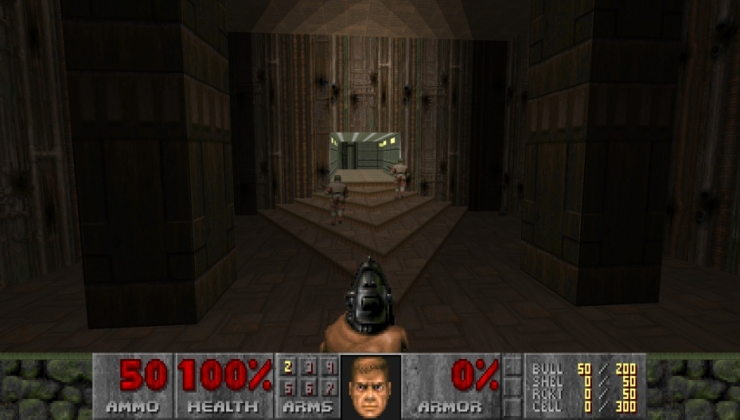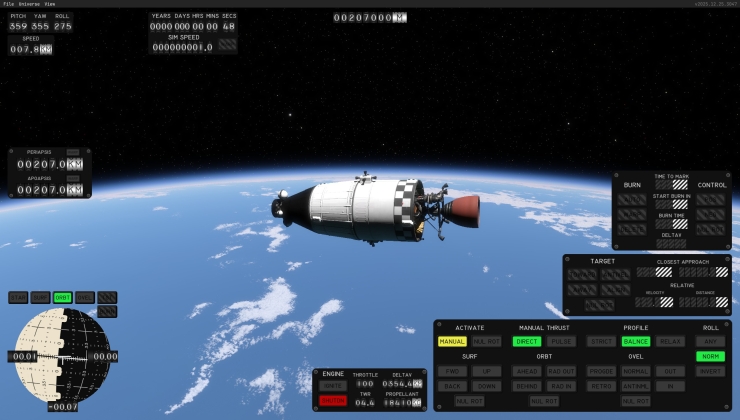Gamescope, an open source project from Valve that's part of what powers the Steam Deck, now has support for NVIDIA Image Scaling. So it now supports both FSR 1.0 and NVIDIA Image Scaling for various GPUs.
The merge request was opened on the same day NVIDIA made that massive announcement about having open source Linux GPU kernel modules and their new Beta Driver 515.43.04. That new driver version is also needed for NVIDIA users who want to try out Gamescope.
What is the point of Gamescope? Well, it handles the display of games in a way that keeps performance nice. If you're running it directly on top of a regular Linux desktop, it also prevents games from interfering with your desktop, plus it enables you to adjust all sorts of things like resolution, refresh rate and of course the extras like FSR 1.0 and now NVIDIA Image Scaling too.
The NVIDIA Image Scaling SDK provides a single spatial scaling and sharpening algorithm for cross-platform support. The scaling algorithm uses a 6-tap scaling filter combined with 4 directional scaling and adaptive sharpening filters, which creates nice smooth images and sharp edges. In addition, the SDK provides a state-of-the-art adaptive directional sharpening algorithm for use in applications where no scaling is required.
NVIDIA GitHub
The directional scaling and sharpening algorithm is named NVScaler while the adaptive-directional-sharpening-only algorithm is named NVSharpen. Both algorithms are provided as compute shaders and developers are free to integrate them in their applications.
Is the image scaling the equivalent of DSR factors on windows? Because this option for me is really a must have when you put smoothing at 6%. It allows to render all your old games at twice the native resolution (1920x1200 in my case which makes it 3840x2400), and therefore making them often better than any HD or Remaster edition.
It is a bit different from the in game option of resolution scaling, and renders a tiny bit more sharper than those options.
Quoting: melkemindSo, this works on X? I thought Wayland support was still incomplete for Nvidia.yeah that was also my understanding, but hopefully I'm just mis informed
Quoting: GuppyExciting news :Dwayland works just fine in GNOME and KDE for Nvidia on most rolling releases.. if you guys are on Mint or Ubuntu based distros you will be waiting til the next release or two so 6 months to a year?
Quoting: melkemindSo, this works on X? I thought Wayland support was still incomplete for Nvidia.yeah that was also my understanding, but hopefully I'm just mis informed
Quoting: tohur"just fine" migth be stretching it - It was my understanding that Ubuntu omitted it last minute because of issues with nvidia ( some minor detail like having no desktop ;) )Quoting: GuppyExciting news :Dwayland works just fine in GNOME and KDE for Nvidia on most rolling releases.. if you guys are on Mint or Ubuntu based distros you will be waiting til the next release or two so 6 months to a year?
Quoting: melkemindSo, this works on X? I thought Wayland support was still incomplete for Nvidia.yeah that was also my understanding, but hopefully I'm just mis informed
Quoting: GuppyAnd again Ubuntu is FAR behind rolling releases.. I have used wayland just fine on EOS (Arch) and other rolling releases like Opensuse Tumbleweed and such but still use X cause of synergyQuoting: tohur"just fine" migth be stretching it - It was my understanding that Ubuntu omitted it last minute because of issues with nvidia ( some minor detail like having no desktop ;) )Quoting: GuppyExciting news :Dwayland works just fine in GNOME and KDE for Nvidia on most rolling releases.. if you guys are on Mint or Ubuntu based distros you will be waiting til the next release or two so 6 months to a year?
Quoting: melkemindSo, this works on X? I thought Wayland support was still incomplete for Nvidia.yeah that was also my understanding, but hopefully I'm just mis informed
Last edited by tohur on 20 May 2022 at 4:32 pm UTC
as the developers sometimes choose to require those packages
i was attempting to compile it and work through missing deps when it appears that ubuntu 22.04 is atleast the minimum version of that distro due to missing libseat/seatd in all other versions
noted on their github issues, it would be possible to work around this by compiling libseat
even for a debian 11, youre out of luck. unless you pull in the testing packages or extreme unstable libseat
HOWEVER, quite understandable, FSR & NIS, wayland, all the things are very new software.
its getting near time to update my OS, possibly moving away from ubuntu because of snap and having to seek alternative maintained PPA for packages i need.
its just a hassle id rather avoid since everything works *just fine* currently.
using FSR in proton-ge works quite well sometimes, atleast.








 How to setup OpenMW for modern Morrowind on Linux / SteamOS and Steam Deck
How to setup OpenMW for modern Morrowind on Linux / SteamOS and Steam Deck How to install Hollow Knight: Silksong mods on Linux, SteamOS and Steam Deck
How to install Hollow Knight: Silksong mods on Linux, SteamOS and Steam Deck